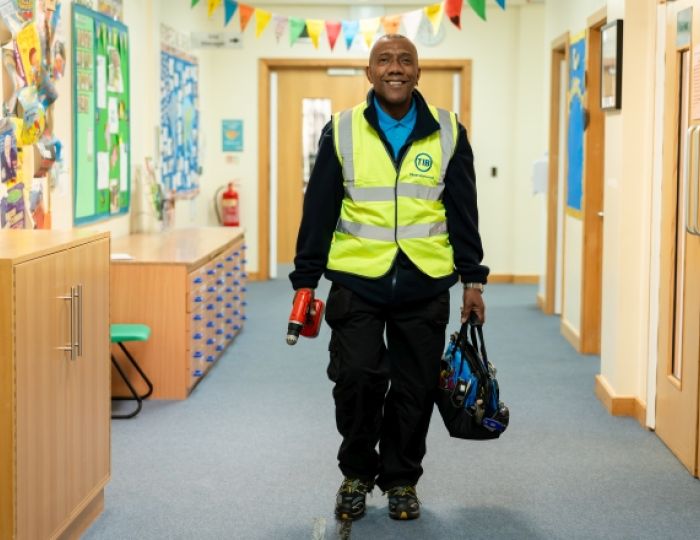For Ruth Coupe, headteacher of Marton Primary Academy and Nursery in Blackpool, visiting another school on a peer review led her to radically overhaul her own school’s approach to reading.
What she saw, heard about and further explored in an ongoing relationship with the host school, Pickhurst Infants in Bromley, led to major changes, benefiting children for whom language acquisition had been a struggle.
Ruth’s transformational experience is one of many from the 2,500 Quality Assurance Reviews carried out by Challenge Partners school leaders across the country. Our peer reviews continued through lockdowns and Covid restrictions, online and in new formats, so leaders could continue to learn from each other and improve their schools.
Professional development is at the heart of peer review, which harnesses the wisdom of senior leaders to support each other. Visiting reviewers benefit as much as the host school, and Ruth Coupe had particular challenges the programme helped her to address.
“Marton is in a deprived area and many of the children have impoverished language,” she explains. “We were a good school but we needed inspiration to know what to do next, and new ideas to help us to improve further.
“Visiting Pickhurst certainly inspired us and completely transformed our approach. Everything about the school emphasised reading and language acquisition, as soon as you walked through the front door.
The outdoor learning areas gave us lots of ideas for language development through play. Each area had books, vocabulary and literacy activities as well as the other activities, so, for instance, in the garden area there were books and words about gardening.
They also had a reading dog, who reluctant readers would read to, helping develop their confidence and enjoyment.
“Back at Marton, we rethought the way we were teaching vocabulary acquisition and reading, weaving them into our curriculum and environment.
Classrooms were filled with links to characters, and the library was developed into somewhere the children can’t wait to go. We arranged experiential learning around texts, such as taking children and their families out for a bear hunt.
Everybody is seen as a teacher of speech and language now, whereas before it was almost like a bolt-on. Our children still have significant barriers, but progress has significantly improved, and staff understanding was integral to that.”
Wide-ranging benefits
Peer reviews were already common in the higher education sector, but schools’ interest in them intensified from 2010, influenced by the vision of a self-improving system.
By 2020, the School Improvement Commission recommended that “All schools should consider the role that school-to-school peer review and family of schools data could take, to help provide a regular external view of their strengths and areas for development.”
The NAHT worked with organisations, including Challenge Partners and the National Foundation for Education Research (NFER), “to establish what evidence exists on what makes a successful peer review”. This resulted in a published guide, The Principles of Effective School-to-School Peer Review.
Challenge Partners’ QA Review has been validated by the Institute of Education and found to offer schools multiple gains, deriving from the “collective educational ambition and mutual trust” that the authors credit for its success.
The CPD is carefully structured, with leaders undergoing a day’s training, which enables them to practise key elements of the QA Review process and receive peer feedback to augment their own professional reflections on what they learnt from that practice.
Once on the three-day review, the role of the expert Lead Reviewer is as much to provide coaching, challenge and support to the peer reviewers as it is to ensure the effectiveness of the review for the host school.
We refer to this as the 50:50 model and we expect all our Lead Reviewers to conduct visits in a way that delivers these dual benefits to both host schools and peer reviewers.
A springboard for learning
The training and professional audit of an institution brings significant developmental benefits for peer reviewers and host institution leaders alike.
It also provides a springboard for further learning as leaders and teachers collaborate within and beyond their school or trust, including learning together, from role models and through coaching.
The principal activity on the first day and in pre-reading is orientation to the host school, understanding its context, approach to school improvement, and evidence of impact.
Further evidence is gathered and triangulated through activities including learning walks and interviews with key personnel, many conducted in partnership with host school leaders. This hones skills around evidence-gathering through skilful open questioning, observation and structured professional dialogue about what is seen.
Peer reviewers then work together to further explore the evidence for structured feedback, highlighting what is working well and potential next steps. Giving the feedback demands skill so that it balances tact and rigour and is delivered in a supportive and developmental way, supported by the Lead Reviewer.
The final element is an opportunity for the host school to present an area of challenge and invite the insights and ideas that peer reviewers bring from their own experience and research. For those participating, it provides a tool and training in an approach they can use in their own work.
Upwards convergence
Challenge Partners was founded by practitioners and uses peer review to further the goal of ‘upwards convergence’ in school performance, in order to improve life chances for children and young people – particularly those facing disadvantage (in whatever form that takes).
The upwards convergence model was established by my predecessor and Challenge Partners’ founding CEO, Professor Sir George Berwick, as he developed the original teaching schools concept.
Upwards convergence is about raising the performance of the highest achieving schools while reducing the gap between them and the lower achieving. It applies equally to student achievement and teacher quality.
Peer review is a necessary component in upwards convergence, but it’s the action taken afterwards that brings the real benefits, for pupils at the host school, the schools which reviewers return to with fresh thinking and examples of excellent practice, and ultimately for successive cohorts of children who benefit year after year.
What do the school leaders say?
George Croxford, CEO, Royal Wootton Bassett Academy Trust
“One review we had made an unbelievable difference. We had been trying to work on pupil premium performance for many years and were getting nowhere. We asked reviewers to look at it and they highlighted how most pupils receiving pupil premium were all in the bottom sets, except for the select few in the top sets who were absolutely flying. It gave us all sorts of new challenges to solve. We moved these pupils into higher sets to stretch them, and ultimately we had positive Progress 8 scores because of this.
James Greenwood, headteacher, Manor Leas Junior Academy, Lincoln
“It’s a robust and rigorous experience that really means you can look at all areas concerned with leadership and the quality of education that young people receive. Governors, children and all staff know that it’s an integral part of our school improvement; all stakeholders understand how it helps us as a school. After the quality assurance review takes place, we can report to governors and it makes sure they aren’t just told what’s going on by senior leaders but have an external report to really triangulate that evidence.”
Rita Hindocvha MBE, Executive Principal of Brook Mead Academy in Leicester
“You get a real injection of quality CPD through the training provided. The experience of undertaking reviews in your own school and going out to see the approaches of colleages around the country is also invaluable. I was trained as a Challenge Partners reviewer and I had the privilege of going into schools for three days in London, Durham and Luton. It’s powerful to see different practices in action. That completely accelerated my development and exposed me to new ways of working.”




_945_573_80_int_s_c1_c_t.jpg)





